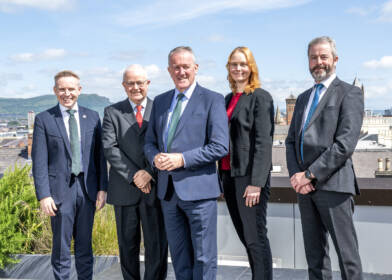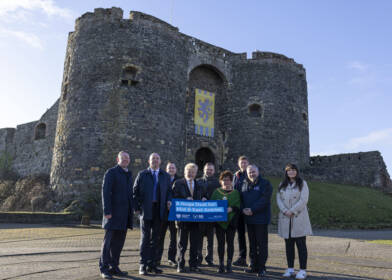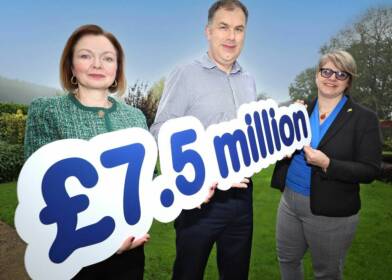Belfast Region City Deal partners have said that confirmation of the NI Executive’s match funding of new investment for infrastructure, regeneration, and tourism projects will help the region’s economy recover from the effects of Covid-19.
The announcement from the Finance Minister brings the overall investment in the Belfast Region City Deal to £850 million, including £150m from the Belfast Region City Deal partners.
The Executive has also agreed to provide up to an additional £100 million for complementary projects where partners can demonstrate a viable capital project which is complementary to the City/Growth Deal proposals.
The Belfast City Region includes Belfast City Council and the surrounding councils of Antrim and Newtownabbey, Ards and North Down, Lisburn and Castlereagh, Mid and East Antrim and Newry, Mourne and Down. This unique partnership also involves Queen’s and Ulster universities, Belfast Metropolitan College and the regional Further Education colleges.
Speaking on behalf of the Belfast Region City Deal partners, Belfast Lord Mayor Councillor Daniel Baker said:
At a time when there’s so much uncertainty because of this pandemic, the confirmation of this significant funding package is very welcome indeed. We’re working to deliver substantial regional regeneration and this investment will allow us to recover from the effects of Covid-19 more quickly, improve quality of life and create much needed jobs.
We also welcome the announcement of £252 million for the Mid, South & West, £210 million for Derry City and Strabane and £72 million for Causeway Coast and Glens – as our economy stands to benefit from our areas collaborating and being boosted together.
It is anticipated that the Belfast Region City Deal will deliver more than 20 projects that will help grow the Belfast region’s business strengths in life and health sciences; ICT, digital and creative industries, and advanced manufacturing. It will also support digital development and tourism-led regeneration across the entire region, underpinned by infrastructure developments and investment in skills to connect people to jobs and services.
These projects will help to create new types of jobs for the future, underpinned by re-skilling programmes, by focusing on the region’s competitive strengths. They will also have a positive impact on the most deprived communities, delivering a balanced spread of benefits across the region.


